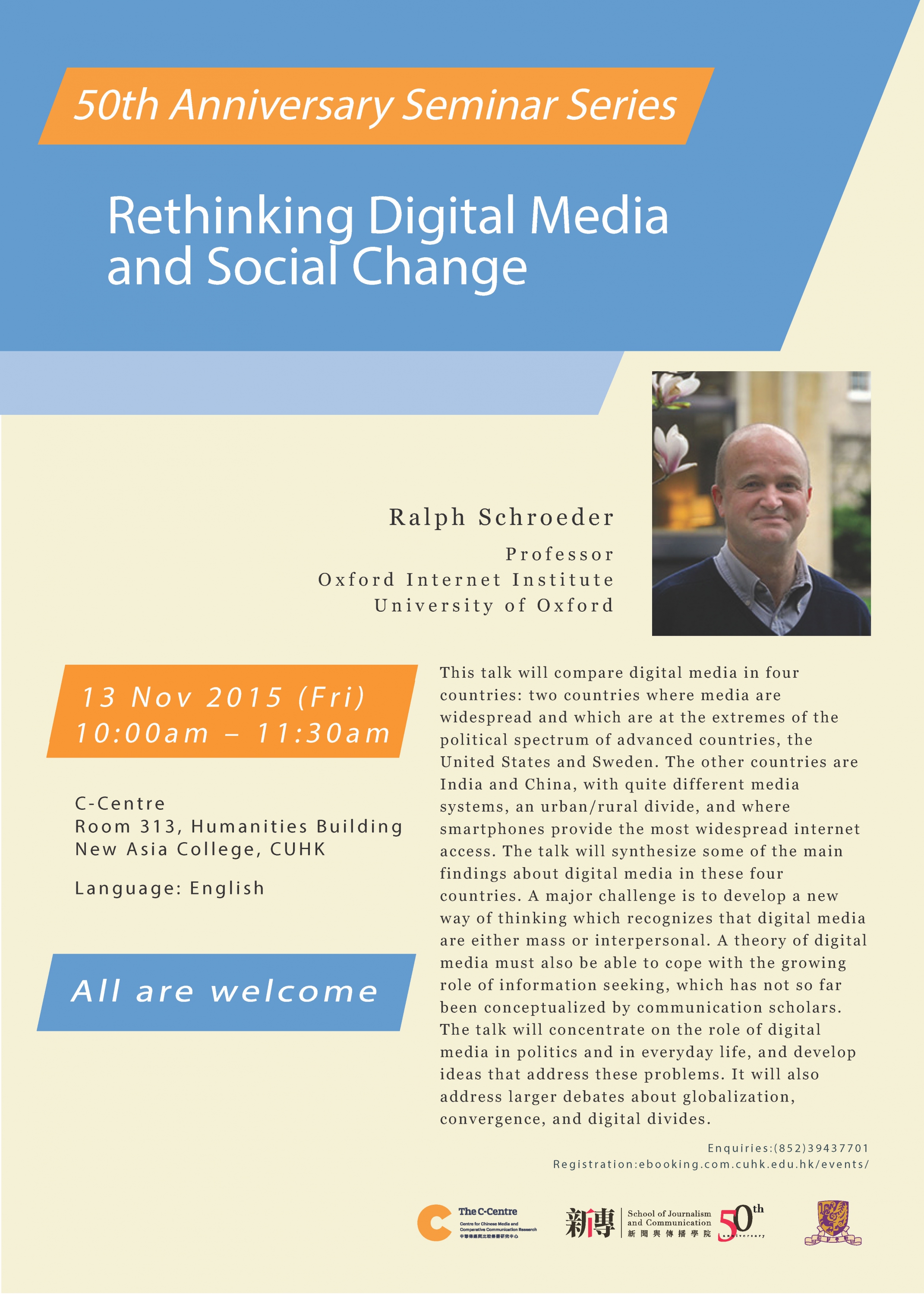Events
Rethinking Digital Media and Social Change: Seminar by Prof. Ralph Schroeder
13 Nov 2015
10:00am – 11:30am
NAH313 (C-Centre)
Prof. Ralph Schroeder
Ralph Schroeder is Professor and director of the Master’s degree in Social Science of the Internet at the Oxford Internet Institute. Before coming to Oxford University, he was Professor in the School of Technology Management and Economics at Chalmers University in Gothenburg (Sweden). His recent books are Rethinking Science, Technology and Social Change (Stanford University Press, 2007) and, co-authored with Eric T. Meyer, Knowledge Machines: Digital Transformations of the Sciences and Humanities (MIT Press 2015). He is the author of six books, editor and co-editor of four volumes, and has published more than 125 papers on virtual environments, Max Weber, sociology of science and technology, e-Research and other topics. Recent projects have focused on big data, including ‘Accessing and Using Big Data to Advance Social Science Knowledge’ (2012-2014), funded by the Sloan Foundation, and ‘Data-driven Approaches to Evidence-informed Policymaking’ for the European Commission (2015).
For registration, please visit http://ebooking.com.cuhk.edu.hk/events/
manlokchan@cuhk.edu.hk
Prof. Ralph Schroeder will give a public talk on the topic of Rethinking Digital Media and Social Change:
Date: Friday, 13 November 2015
Time: 10:00am – 11:30am
Venue: Room 313, Humanities Building, New Asia College, CUHK
Speaker: Ralph Schroeder, Professor, Oxford Internet Institute, University of Oxford
Language: English
Synopsis: The social implications of new digital media are often discussed for individual countries and technologies, or at a general level. So far, there are few studies which compare countries and treat new media in the context of the media system as a whole, including traditional and new digital media. This talk will compare digital media in four countries: two countries where media are widespread and which are at the extremes of the political spectrum of advanced countries, the United States and Sweden. The other countries are India and China, with quite different media systems, an urban/rural divide, and where smartphones provide the most widespread internet access. The talk will synthesize some of the main findings about digital media in these four countries. A major challenge is to develop a new way of thinking which recognizes that digital media are mostly unlike traditional media which are either mass or interpersonal. A theory of digital media must also be able to cope with the growing role of information seeking, which has not so far been conceptualized by communication scholars. The talk will concentrate on the role of digital media in politics and in everyday life, and develop ideas that address these problems. It will also address larger debates about globalization, convergence, and digital divides.


